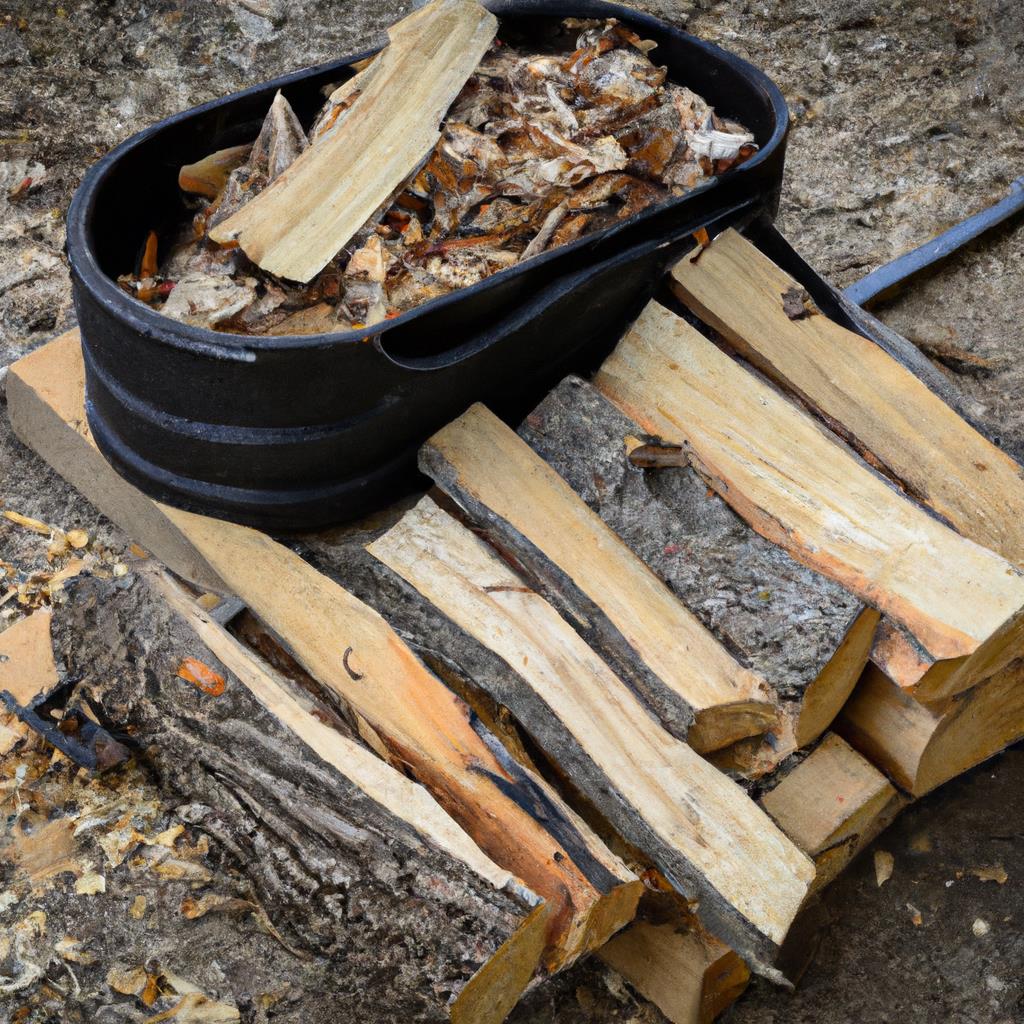Camping and tenting are wonderful ways to connect with nature and enjoy the great outdoors. However, one essential aspect of preparing for a camping trip is properly storing and seasoning firewood. Having access to dry and well-seasoned firewood is crucial for a successful camping experience, as it will ensure that you can easily start and maintain a fire for cooking, warmth, and ambiance. In this article, we will discuss how to properly store and season firewood for your tenting and camping site.
When it comes to storing firewood for camping, the key is to keep it dry and well-ventilated. Moisture is the enemy of firewood, as wet wood is difficult to ignite and burns inefficiently, producing excessive smoke and soot. To properly store your firewood, start by choosing a dry and elevated location away from the ground. This will help prevent the wood from absorbing moisture from the soil and ensure proper airflow around the woodpile.
Next, stack the firewood in a crisscross pattern to allow for optimal airflow between the logs. This will help the wood dry more quickly and evenly, reducing the risk of mold or rot. Make sure to leave space between the logs to allow air to circulate and prevent the formation of condensation. Additionally, cover the top of the woodpile with a tarp or waterproof cover to protect it from rain and snow. However, make sure to leave the sides of the woodpile open to allow for ventilation.
In addition to proper storage, it is important to season your firewood before using it for your camping trip. Seasoning involves allowing the wood to dry out naturally over time, which improves its combustibility and overall quality. Ideally, firewood should be seasoned for at least six months to a year before use, depending on the type of wood and its moisture content.
To season firewood, start by cutting the wood into manageable lengths and splitting it into smaller pieces. This will increase the surface area of the wood and expedite the drying process. Stack the wood in a single row with the cut ends facing south or west to take advantage of the sun's warmth and airflow. Make sure the woodpile is in a sunny and well-ventilated location to facilitate drying. Rotate and restack the wood periodically to ensure even drying and prevent mold or mildew growth.
Properly seasoned firewood should have a moisture content of around 20% or less, which can be tested using a moisture meter. Dry firewood will be lighter in weight, make a hollow sound when struck together, and produce a sharp crackling sound when burned. Avoid using green or unseasoned wood for camping, as it will be difficult to ignite, produce excessive smoke, and burn inefficiently.
When it comes to selecting the type of wood for your camping fire, opt for hardwoods such as oak, maple, or hickory, as they burn hotter and longer than softwoods like pine or spruce. Hardwoods also produce less smoke and create a bed of hot coals that are ideal for cooking. Softwoods can be used for kindling or quick fires but are not suitable for sustained heat and cooking.
In conclusion, properly storing and seasoning firewood is essential for a successful camping experience. By following these tips and guidelines, you can ensure that you have dry and well-seasoned firewood for your tenting and camping site. Remember to keep your firewood dry, well-ventilated, and properly seasoned to enjoy a warm and cozy campfire during your outdoor adventures.


leave a comment